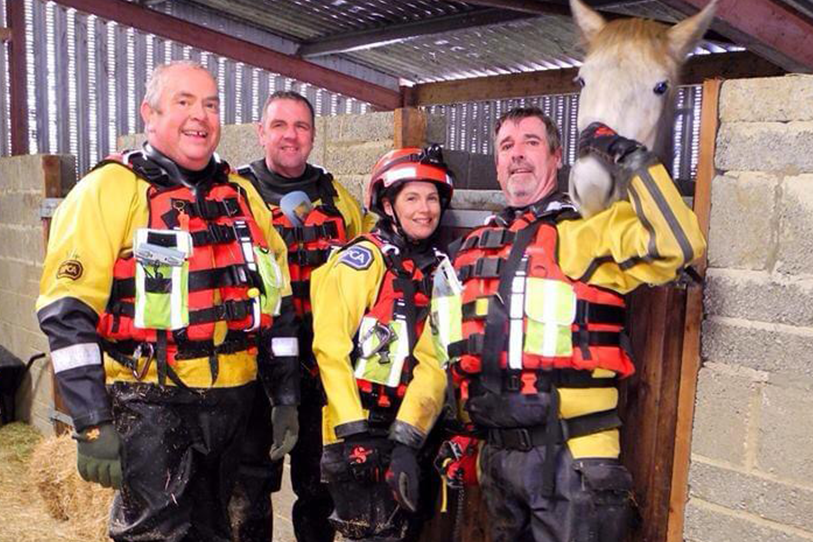Five Minutes With Emma Smith
Meet ARO Emma Smith, who describes her job as being a 'police officer for animals', ensuring their wellbeing and rescuing them when needed. She loves the excitement and unpredictability of each day, working alongside other agencies to protect animals.

Tell us a little bit about your job – how would you describe it to a five-year-old?
I often describe it as a police officer for animals. It’s my job to make sure that people are kind to animals and look after them really well. If animals become injured or unwell or need rescuing then I try and help them or find someone else to help them.
What motivates you to get up for work?
I love how unique my job is and that there’s no other job out there like it. I love the fact that each day is different and that I never know what I’m going to be faced with, which is challenging but exciting at the same time. Ultimately, though, I am motivated by the fact that my working day is going to help improve the lives of animals and hopefully educate people about animal welfare. I love that my job makes a difference.
What’s your favourite part of working here?
The RSPCA is one of the most well-known charities, and when I tell people what I do for a living it generates lots of questions. I love that I am part of the biggest animal welfare organisation, speaking up for animals who can’t speak for themselves.
Day to day I love the freedom of starting my shift from my van, not knowing where I am going to end up or what situation I may end up dealing with. I do a lot of multi-agency working with the police, housing, social services which I love – it’s so interesting seeing how the different agencies work together and back up each other’s work.
Can you tell us about your most memorable rescue?
It was many years ago with three of my colleagues from the water rescue team. There had been some seriously heavy flooding and a number of horses had become stuck in a flooded field without access to food. We used boats to access them then led them to a barn on much higher ground. Seeing them settled in a warm, dry barn tucking into their hay, and listening to them whinny in contentment, was the most rewarding feeling. We were all completely exhausted afterwards but felt a huge sense of pride in our teamwork.
How can members of the public help wildlife?
I do a lot of school talks and always cover helping animals and wildlife. First and foremost, respect the environment, don’t litter or leave anything lying around that could be a hazard to wild animals – I have seen many a badger and hedgehog tangled in loose football goal netting and ducks with plastic rings about their beaks – and ensure electricity is switched off when not in use.
If you think a wild animal might be unwell or injured, and it is safe to do so, then get it to get it to a vet who has the knowledge and experience to assess and treat it accordingly. I would never recommend trying to care for a wild animal yourself at home or asking someone else to care for it; although you may think you’re helping, you could be delaying treatment or causing the animal more distress.
The RSPCA was founded in 1824. What moment in time, in the last 200 years, would you have liked to work for the RSPCA and why?
I would have to say 2007, when the Animal Welfare Act came into force. This was the first review of pet law in 94 years. It made my colleagues’ jobs much easier in that they could finally act if an animal was ‘likely to suffer’ rather than have to wait until it actually was suffering, which must have been so frustrating. I was lucky that this act was already in place when I joined, but I bet it was a momentous feeling for those officers who were already in service.
It must have also been a pretty special time to be the first female officer employed by the RSPCA. I would have happily stepped in those shoes.
Join Walk on the Wild side
Ready for a new challenge?
This September, take the RSPCA’s Walk on the Wild Side, enjoy time out in nature and raise money to make the world a better place for animals. Sign up to receive your free 200th anniversary pin badge, and to get access to our new podcast series about UK wildlife. Our wildlife is wonderful–and it’s up to us to keep it that way.

